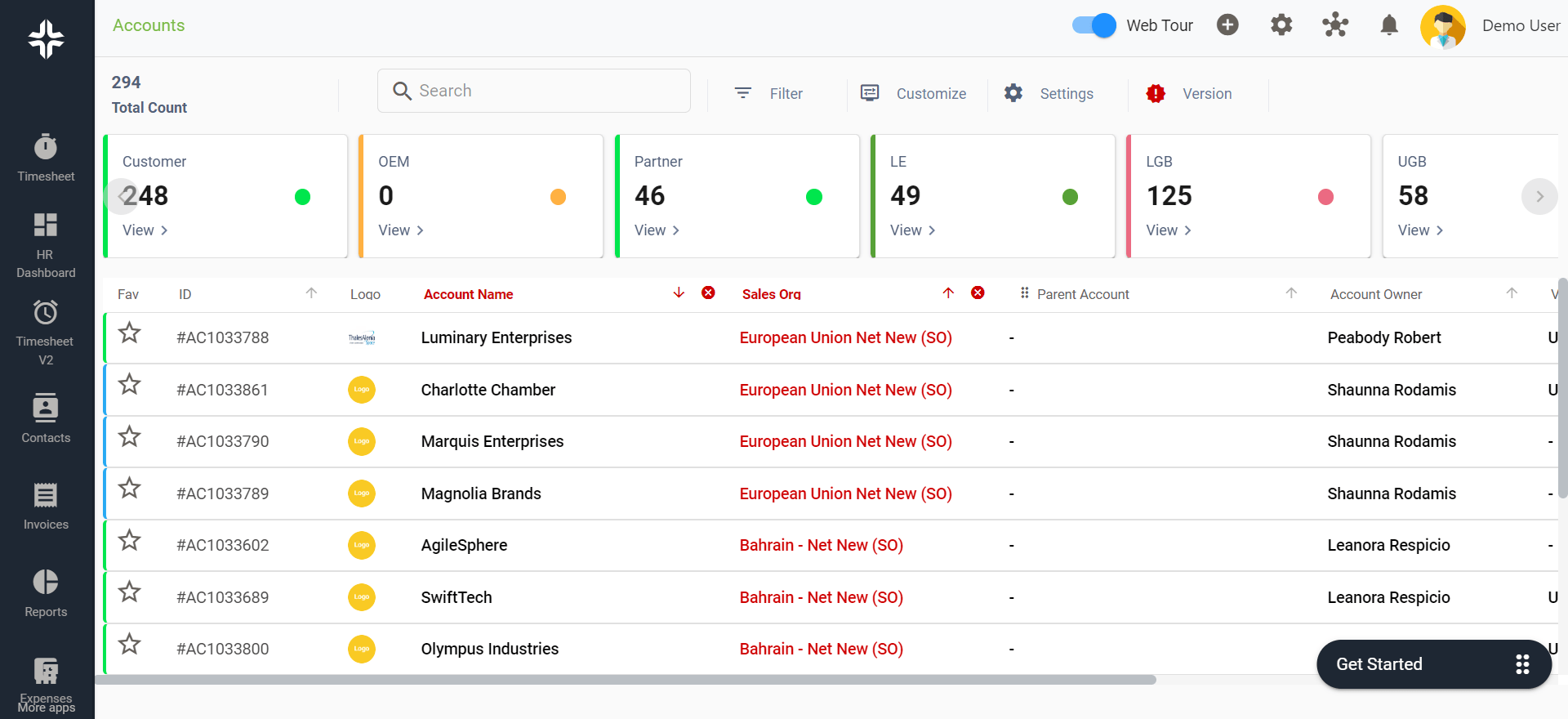Home » PSApedia
Sales Forecast Accuracy
Uncover Insights on Sales Forecast Accuracy. Optimize Projections and Maximize Planning.

What Is Sales Forecast Accuracy?
Sales forecast accuracy refers to the ability to predict future sales with a high degree of precision. It involves analyzing historical sales data, market trends, and other factors to make informed predictions about future sales performance.
The precision or closeness of forecasted sales figures to actual sales realized within a particular period is referred to as sales forecast accuracy. Analyzing sales forecast accuracy is critical in Professional Service Automation (PSA) for informed decision-making, resource allocation, and strategic planning.
Importance of Sales Forecast Accuracy
This metric holds significant importance for various reasons:
1. Decision-Making: Accurate forecasts aid in making informed decisions regarding budgeting, inventory management, and resource allocation.
2. Performance Evaluation: Evaluates the effectiveness of forecasting models and sales strategies.
3. Risk Mitigation: Helps in identifying potential discrepancies between forecasts and actual sales, enabling proactive measures.

Importance of Sales Forecast Accuracy
How to calculate Sales Forecast Accuracy?
Measurement:
Sales Forecast Accuracy is measured by comparing the predicted sales figures against the actual sales figures within a specified period, often expressed as a percentage or numerical variance.
Example:
If a forecast predicts $500,000 in sales, but the actual sales realized are $480,000, the forecast accuracy would be 96% (($500,000 – $480,000) / $500,000 * 100%).
Sales Forecast Accuracy vs Other Sales Metrics
While sales forecast accuracy and monthly recurring revenue (MRR) are related metrics, they measure different aspects of a business’s performance. MRR refers to the predictable revenue a business can expect to generate each month, while sales forecast accuracy measures the degree of precision in predicting future sales.
1. Sales Variance: Sales variance measures the difference between actual and budgeted sales, while accuracy assesses the closeness of predictions to actual figures.
2. Sales Trend Analysis: Trend analysis evaluates patterns and trends in sales data, while accuracy measures the precision of forecasts.
3. Sales Growth Rate: Growth rate focuses on the rate of increase in sales over time, while accuracy evaluates the precision of forecasted growth.
| Metric | Definition | Importance / Use |
|---|---|---|
| Sales Forecast Accuracy | The degree of accuracy in predicted sales versus actual sales | Measures the reliability of sales predictions and planning |
| Sales Growth Rate | Rate of increase in sales revenue over a period | Reflects the growth trajectory and expansion of sales |
| Sales by Region or Segment | Revenue generated from specific geographic regions or segments | Helps in understanding performance across different regions or segments |
| Customer Acquisition Rate | Rate at which new customers are acquired | Measures the speed of acquiring new customers |
How Is Sales Forecast Accuracy Used?
Sales forecast accuracy is used in a variety of ways to help businesses optimize their operations and maximize their revenue. Here are a few examples:
1. Revenue planning: Sales forecast accuracy helps businesses plan their revenue streams and make informed decisions about resource allocation.
2. Resource allocation: By accurately forecasting sales, businesses can allocate resources more effectively, ensuring they have the right people and materials in place to meet demand.
3. Customer satisfaction: Accurate sales forecasts help businesses meet customer demand more effectively, leading to higher customer satisfaction.
4. Cost savings: By accurately forecasting sales, businesses can avoid unnecessary costs associated with overstaffing or over-provisioning.
Ready to Optimize Your Sales Forecast Accuracy?
KEBS is a powerful PSA software that can help you optimize your sales forecast accuracy and maximize your revenue. With KEBS, you can easily track your sales leads, analyze sales data, and make informed decisions to improve your sales forecast accuracy.
KEBS offers advanced analytics tools that analyze historical data and improve forecasting accuracy. Utilizing KEBS forecasting models enhances precision and reliability in predicting future sales.
KEBS integrates real-time data, providing up-to-date insights for more accurate forecasts.

KEBS Deal Management
Ready to optimize your Sales Forecast Accuracy? Contact us at KEBS or request a demo to explore how our solutions enhance sales prediction precision, strategic planning, and decision-making within your organization.



